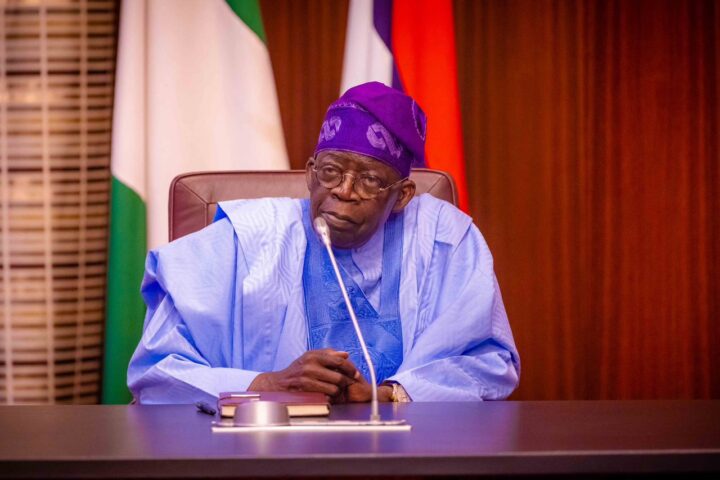By Lukman Olabiyi
The Nigerian Human Rights Community (NHRC), a coalition of 130 civil society and community-based organizations, has called on President Bola Ahmed Tinubu to urgently address the historical marginalization of the Itsekiri people in Nigeria’s oil and gas sector.
NHRC, which recently concluded a weeklong environmental tour of the Niger Delta, warned that the ongoing injustice against the Itsekiri is escalating into a national security threat.
The coalition highlighted growing unrest among the Itsekiri people, who feel increasingly oppressed by both local and federal authorities.
The Itsekiri, numbering around 1.5 million and residing primarily in Delta and Edo States, are said to be losing faith in the Nigerian state, despite their strong support for President Tinubu’s government, hoping he would address their grievances based on his history of advocating for liberty and democracy.
The rights group expressed alarm over the continuous marginalization of the Itsekiri, describing it as an issue that could trigger a major crisis in the Niger Delta if not swiftly addressed.
The NHRC stressed that while the Itsekiri remain loyal to the current government, they are deeply concerned about the persistent neglect of their community’s needs and the exclusion of their people from key roles in the oil and gas industry.
The group accused the management of the Nigerian National Petroleum Corporation (NNPC) and its Group Managing Director, Bala Wunti, of exacerbating the marginalization of oil-producing communities by centralizing power in the hands of non-oil-producing ethnic groups.
The NHRC pointed out the paradox of the Itsekiri community: while they contribute the highest volume of crude oil from any single indigenous group in Africa, they are denied access to critical decision-making positions within the industry.
The group noted that there has never been an Itsekiri Minister of Petroleum since Nigeria’s independence in 1960, and no Itsekiri person has ever been appointed as the Group Managing Director of NNPC.
Adding that the exclusion of the Itsekiri from these positions, despite their critical role in Nigeria’s oil production, is seen as a deliberate act of marginalization.
The coalition also underscored the economic and social challenges facing the Itsekiri, pointing out that the oil companies operating in the region have failed to meet the expectations of the Itsekiri people, leaving the community with little compensation for the environmental damage caused by decades of oil extraction.
The NHRC estimated that the Itsekiri community is owed at least $50 billion in compensation for the exploitation of their land and resources, in addition to the need for greater representation in the oil and gas sector.
The NHRC warned that the situation in Itsekiri territories is reaching a breaking point, with the community increasingly feeling like outsiders in their own land, they called on the federal government to ensure the inclusion of Itsekiri people in high-ranking positions within the NNPC and other oil companies, reflecting their community’s significant contributions to Nigeria’s oil economy.
